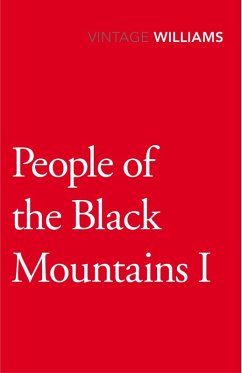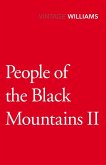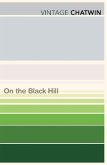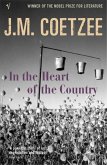This proud and haunting novel is the last great work of Raymond Harris, his final testament.
Here, in one vast, breathtaking sweep is his story of the land where he was born, the land he loved and left, but could never forget - the story of the people of Wales and the borders, not over one or two generations but many thousands, from the very beginning of recorded time.
People of the Black Mountain is a chronicle with a difference, alive with feeling, set within a night-long quest of a young man of today, searching for his grandfather lost on the high ridges. On the moonlit heights Glyn hears voices calling within him, voices which pull us back, over the rim of the years to the days of Marod and his family, sheltering in their caves and hunting horses in a misty Arctic summer. As Glyn follows the tracks the stories form a linking chain across the ages, from before the last Ice-Age to the fierce, defiant struggle against the invading Romans.
Lost lives, forgotten memories, like like the arrowheads beneath close-cropped turf. Myth and magic, plague and invasion, the warmth and sadness of daily life - slowly the waves of history ebb and flow, like the oceans which long ago formed the sandstone layers at the heart of the mountains themselves.
Rooted in the past yet written for the present, People of the Black Mountains is a novel unlike any other, written by one of the great men of our time: a journey in search of a buried history, following the tracks on a map that all of us can read - and walk along - today.
Here, in one vast, breathtaking sweep is his story of the land where he was born, the land he loved and left, but could never forget - the story of the people of Wales and the borders, not over one or two generations but many thousands, from the very beginning of recorded time.
People of the Black Mountain is a chronicle with a difference, alive with feeling, set within a night-long quest of a young man of today, searching for his grandfather lost on the high ridges. On the moonlit heights Glyn hears voices calling within him, voices which pull us back, over the rim of the years to the days of Marod and his family, sheltering in their caves and hunting horses in a misty Arctic summer. As Glyn follows the tracks the stories form a linking chain across the ages, from before the last Ice-Age to the fierce, defiant struggle against the invading Romans.
Lost lives, forgotten memories, like like the arrowheads beneath close-cropped turf. Myth and magic, plague and invasion, the warmth and sadness of daily life - slowly the waves of history ebb and flow, like the oceans which long ago formed the sandstone layers at the heart of the mountains themselves.
Rooted in the past yet written for the present, People of the Black Mountains is a novel unlike any other, written by one of the great men of our time: a journey in search of a buried history, following the tracks on a map that all of us can read - and walk along - today.
Dieser Download kann aus rechtlichen Gründen nur mit Rechnungsadresse in A, B, BG, CY, CZ, D, DK, EW, E, FIN, F, GR, HR, H, IRL, I, LT, L, LR, M, NL, PL, P, R, S, SLO, SK ausgeliefert werden.









